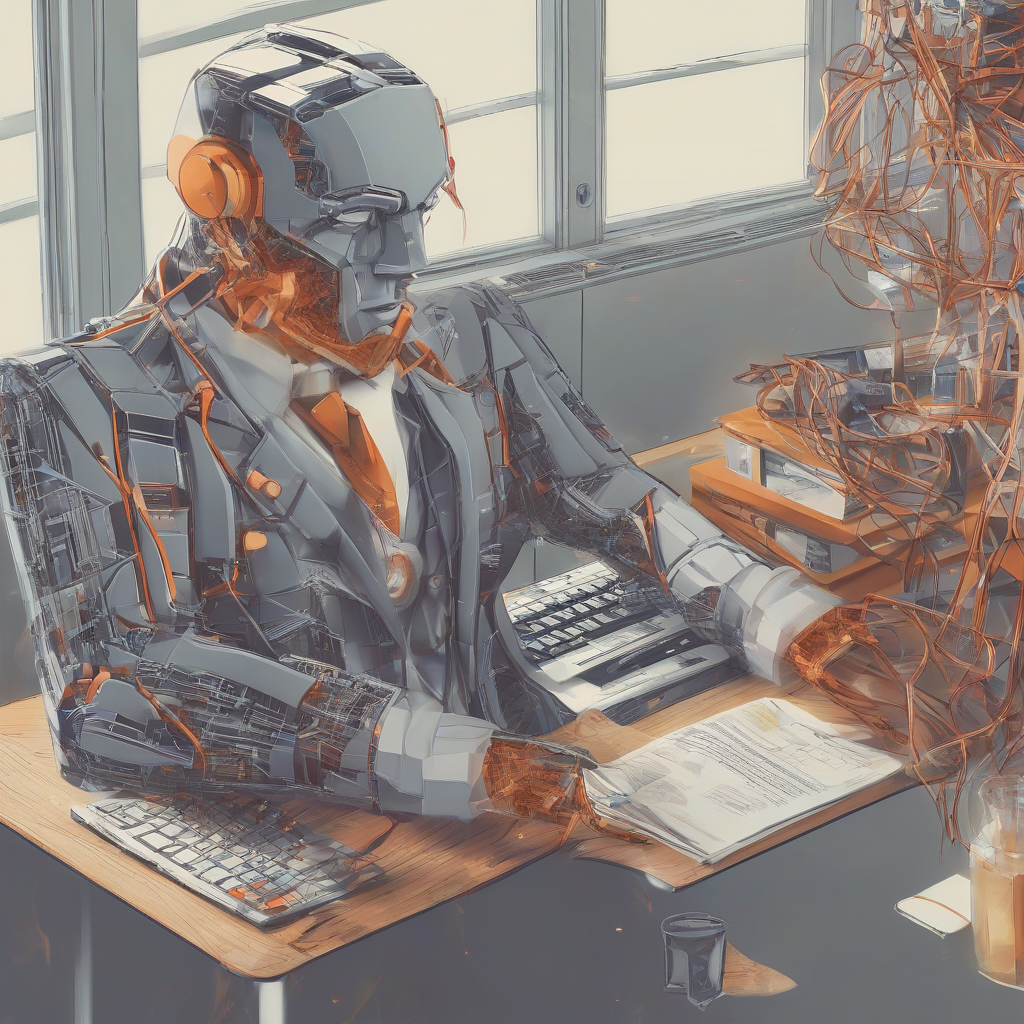AI in Educational Technology: Revolutionizing Learning Experiences
Artificial intelligence (AI) is rapidly transforming various industries, and education is no exception. The integration of AI in educational technology is ushering in a new era of personalized, engaging, and effective learning experiences. From adaptive learning platforms to intelligent tutoring systems, AI is empowering educators and learners alike to achieve unprecedented levels of academic success.
The Impact of AI on Education
- Personalized Learning: AI algorithms can analyze student data, including learning styles, strengths, weaknesses, and progress, to tailor educational content and pace to individual needs. This personalized approach ensures that every student receives the appropriate support and challenges to thrive.
- Adaptive Learning Platforms: Adaptive learning platforms leverage AI to dynamically adjust the difficulty and complexity of learning materials based on student performance. These platforms provide personalized feedback and recommendations, helping learners stay engaged and motivated.
- Intelligent Tutoring Systems: AI-powered tutoring systems act as virtual mentors, providing personalized guidance and support to students. They can answer questions, provide explanations, and offer feedback, simulating the experience of one-on-one tutoring.
- Automated Assessment and Grading: AI algorithms can automate the process of grading assignments and tests, freeing up teachers’ time to focus on other tasks, such as providing personalized feedback and guidance.
- Enhanced Accessibility: AI-powered tools, such as text-to-speech and speech-to-text software, can make educational content accessible to students with disabilities, promoting inclusivity and equal opportunities.
Key AI Technologies in Educational Technology
- Machine Learning: Machine learning algorithms are used to analyze student data and predict learning outcomes. This enables educators to identify students at risk of falling behind and provide timely interventions.
- Natural Language Processing (NLP): NLP techniques allow AI systems to understand and process human language, enabling them to interact with students in a natural and engaging way. This includes chatbots, virtual assistants, and automated feedback systems.
- Computer Vision: Computer vision algorithms can analyze images and videos, providing valuable insights into student engagement and learning processes. They can also be used for automated assessment of tasks that involve visual elements.
Benefits of AI in Education
- Improved Learning Outcomes: AI-powered tools can personalize learning experiences, making education more engaging and effective, leading to improved student outcomes.
- Increased Efficiency: AI can automate tasks such as grading and assessment, freeing up teachers’ time to focus on other areas, such as individualized instruction and student support.
- Enhanced Equity: AI can provide personalized learning experiences for all students, regardless of their background or learning style, promoting equity in education.
- Cost-Effectiveness: AI-powered tools can reduce the need for expensive resources and personnel, making education more cost-effective.
- Data-Driven Insights: AI can provide educators with valuable data-driven insights into student performance and learning patterns, enabling them to make informed decisions about pedagogy and curriculum.
Challenges and Ethical Considerations
- Data Privacy and Security: The collection and use of student data raise concerns about privacy and security. It is crucial to ensure that data is collected and used ethically and responsibly.
- Bias in Algorithms: AI algorithms can perpetuate existing biases if they are trained on biased data. It is essential to address bias in AI systems to ensure fairness and equity in education.
- Human Interaction: Overreliance on AI could lead to a decline in human interaction and collaboration in education. It is important to strike a balance between technology and human connection.
- Accessibility and Digital Divide: Access to technology and digital literacy are essential for students to benefit from AI-powered tools. Addressing the digital divide is crucial for ensuring equitable access to AI-enhanced education.
- Teacher Training: Educators need to be adequately trained on how to use AI effectively and integrate it into their teaching practices.
Future of AI in Education
The future of AI in education is bright and filled with possibilities. As AI technologies continue to evolve, we can expect to see even more innovative and personalized learning experiences. AI will play a crucial role in addressing challenges in education, such as personalized learning, teacher shortages, and student engagement.
- Virtual Reality and Augmented Reality: AI-powered VR and AR technologies can create immersive and interactive learning experiences, making education more engaging and effective.
- Personalized Learning Pathways: AI can create personalized learning pathways based on student interests, strengths, and goals, enabling learners to explore their passions and develop their potential.
- AI-Powered Tutors: AI-powered tutors will become increasingly sophisticated, providing personalized support and guidance to students 24/7.
- Predictive Analytics: AI can be used to predict student performance and identify students at risk of falling behind, enabling educators to intervene early and prevent academic difficulties.
Conclusion
AI is transforming the landscape of education, providing innovative tools and approaches to enhance learning experiences. While challenges and ethical considerations exist, the potential of AI to revolutionize education is undeniable. By embracing AI responsibly and ethically, we can create a future where education is more personalized, engaging, and effective for all learners.








